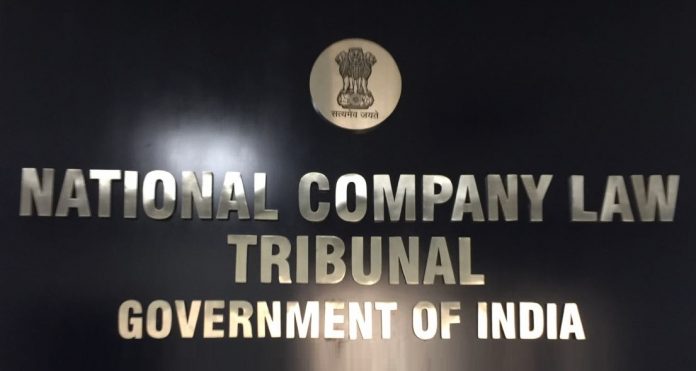This article is written by Shankarlal Raheja who is pursuing a Certificate Course in NCLT Litigation from LawSikho.
Introduction
A Demand notice/letter is an initial and preliminary intimation to the debtor to initiate action for payment toward the debt or an invoice. It is a pre-requisite that the Demand Notice/letter categorically states time within which the amount of debt or amount payable against the Demand Notice /letter is paid or face legal proceeding/action thereafter. Thus, it is the final effort and opportunity on behalf of the creditor to redressing the dispute and or recover the amount due before initiating any legal/ adversarial process.
Section 80 of Civil Procedure Code (CPC) mandates that before initiating any legal proceedings against Government or any public officer without providing sufficient notice as prescribed therein before filing of any suit or legal proceedings. Undoubtedly, other than as mentioned in section 80 of CPC, no notice to the opponent/adversary is issued before the institution of the suits.
Albeit, you are not legally bound to send a reply before the prescribed date in the demand notice. However, not replying to the notice leaves the Creditor with no option to escalate the matter further and taking formal legal action against the Debtor.
For the Purposes of Insolvency and Bankruptcy Code 2016 (Code), a demand notice may either be a notice of default or a copy of the invoice demanding the payment of unpaid and undisputed Operational Debt within a period of Ten Days, before initiation of the Corporate Insolvency Resolution Process (CIRP). The Code also provide for the format of Demand Notice and Copy of Invoice as Form 3 and Form 4 respectively.
Relevance of Demand Notice
With the advent of Code, the Demand notice has assumed manifest importance particularly if you are an Operational Creditor (OC) under the Code. The Code under section 8(1) mandates that an OC may, on occurrence of default, deliver a demand notice of unpaid debt or copy of unpaid invoice in the form and format as prescribed thereunder. Thus, effectively delivery of the demand notice to the Corporate Debtor (CD) is sine qua non. The CD should be made aware of the default by duly serving the Demand Notice upon him as held by NCLAT in Alloysmin Industries V. Raman Casting Pvt. Ltd., Company Appeal (AT) (Insolvency) No.684 of 2018. Further, it is mandatory to serve the demand notice, either at the registered office or corporate office, or both and or by electronic mode. In Krystal Integrated Services Pvt. Ltd. vs. Indiaontime Express Private Limited, the NCLAT held that without a valid service of the Demand Notice, the OC shall not be entitled to triggering of the CIRP process.
The NCLAT in The Sandesh Ltd v. Realm Media Solutions Pvt. Ltd. Company Appeal (AT)(Ins) No. 222 of 2018, in its order dated 14.03.2019, held that
” when the OC is able to prove that the CD is deliberately avoiding the service of the notice, then the Adjudicating Authority may allow for the publication of the notice in the newspaper and if even after that the CD fails to appear, then the Demand Notice may be deemed to have been served on the Respondent.”
From the foregoing, it is clear that NCLAT has emphasized that the service of the Demand notice should be bona fide. It should not be a mere compliance or for the sake of formality and rather should be in an effective manner so that he is aware that such a notice has been issued and served upon him. It is also precursory cautioning of the proposed intentions of the OC to initiate the CIRP under the Code. The fact that the OC has sent the demand notice demanding the payment of the operational debt owed by the CD reflects the gravity and seriousness on the part of the OC to escalate the matter resulting in CIRP process against the CD.
Section 8(2)(a) of the Code affords an opportunity to make the payment in ten days or to elucidate any pre-existing dispute for the default.
In Swiss Ribbons P Limited v Union of India, Writ Petition (Civil) No. 99 of 2018 decided on 25.01.2019 the Apex Court held that the OC has to claim a right to payment of a liability or obligation in respect of an existing undisputed debt, which may be due.
In Mobilox Innovations (P) Ltd. v. Kirusa Software (P) Ltd., (2018) 1 SCC 353, the Apex court held that as the result of the receipt of the Demand Notice, the CD must bring either of the two to the notice of the OC:
- Make the payment within the prescribed period of 10 days of the receipt of the demand notice or copy of invoice under section 8 of the Code; or
- Existence of a dispute and/or the record of the pendency of a suit or arbitration proceeding filed before the receipt of such notice or invoice.
Thus, in the absence of the above, the OC shall be at liberty to initiate the CIRP and the CD shall be saddled with the unnecessary strife of defending the CIRP
The Notice under section 8 of the Code is thus a final opportunity awarded to the CD to pay the debt within ten days or put forth the reasons for non-payment such as an existing dispute. Thus, the cause of action arises on the expiration or efflux of the prescribed notice period of Ten days.
An important distinction between the application filed by an FC and an OC is that in the case of the latter, the AA admits the application only if there is no dispute regarding the existence of the debt or record of pendency of any suit or arbitration proceedings filed before the receipt of the Demand Notice. Where the AA is not satisfied with the evidence and documentation submitted by the OC and considers that a genuine dispute remains over the alleged debt, the AA may dismiss the petition, advising the parties to approach other forums.
In Mobilox Innovations (P) Ltd. v. Kirusa Software (P) Ltd., (2018) 1 SCC 353, wherein the Apex court held that “…What is important is that the existence of the dispute and/or the suit or arbitration proceeding must be pre-existing i.e. it must exist before the receipt of the demand notice or invoice, as the case may be.”
The Supreme Court has thus held that if the dispute predates the receipt of the notice, the Adjudicating Authority (AA) can reject the CIRP application of OC. The AA does not need to be satisfied whether the defense is likely to succeed. So long as a dispute truly exists, the AA has to merely reject the application.
In M/s Drumlum India P limited v/s M/s Sharma Kalypso P Limited, Company Appeal (AT) (Insolvency) No. 351 of 2018 the NCLAT had held that no reply to demand notice given by the CD, will not take away the right of or deprive the CD to take a plea of existence of a dispute before the Adjudicating Authority at the time of admission of the application u/s 9. The NCLAT has failed to pay attention to the emphasis laid by the SC in Mobilox Innovations (P) Ltd. v. Kirusa Software (P) Ltd. on the importance of raising such a dispute in the “reply to the demand notice”.
Conclusion
From the above it is clear that it is mandatory and obligatory on the part of the OC to effectively deliver the Demand Notice for an existing undisputed debt at his appropriate address and in worst scene by way of a public notice. It is a final opportunity to make the payment in ten days or to elucidate any pre-existing dispute. Moreover, the dispute cited must not be a patently feeble legal argument or an assertion of fact unsupported by evidence before the receipt of the Demand Notice. The Strict onus lies on the CD to show the existence of a dispute before the delivery of the Demand Notice as otherwise the same will defeat the purpose of Code and simultaneously the OC cannot be permitted to use the Code as a tool for recovery of his dues and if permitted then the AA will be engrossed in the veracity of the claims of the parties.
Thus if the CD replies to the demand notice and brings to the attention of the OC, existence of a dispute, then the OC would not being able to initiate the CRIP and the AA would rightfully reject the OC application. Moreover, it would also have facilitated an informal negotiation between the parties, without having to approach the tribunal.
In other words, it is safe to state that if the CD ignores or imprudently handles the Demand Notice and fails to make the payment within 10 days or raise the contention of preexisting dispute then he will be liable to face the CIRP process. In view of the above, not replying or ignoring the Demand notice results in the CD losing his right to raise any pre-existing dispute thereafter, as the contents raised by the CD will be taken into consideration whilst deciding the issue to elucidate any pre-existing dispute.
Students of Lawsikho courses regularly produce writing assignments and work on practical exercises as a part of their coursework and develop themselves in real-life practical skill.
LawSikho has created a telegram group for exchanging legal knowledge, referrals and various opportunities. You can click on this link and join:
 Serato DJ Crack 2025Serato DJ PRO Crack
Serato DJ Crack 2025Serato DJ PRO Crack











 Allow notifications
Allow notifications


